Demon Fuzz | Interview | “Afreaka!”
Demon Fuzz released their cult classic ‘Afreaka!’ in 1970. It’s a truly impressive record taking its influences from funk, soul, jazz, psychedelia and prog.
Demon Fuzz was an English rock band which was formed in 1968 and broke up in 1972. Its members had all immigrated to Britain from Commonwealth countries. The band’s name means “devil’s children” or “bad policemen”. The band’s music was influenced by West African music, calypso, soul, jazz, and ska, and saxophonist/founder Paddy Corea had a background in playing ska music. The music they heard during a trip to Morocco led to a change in their style resulting in ‘Afreaka!’ – a cult classic of psychedelic funk rock.
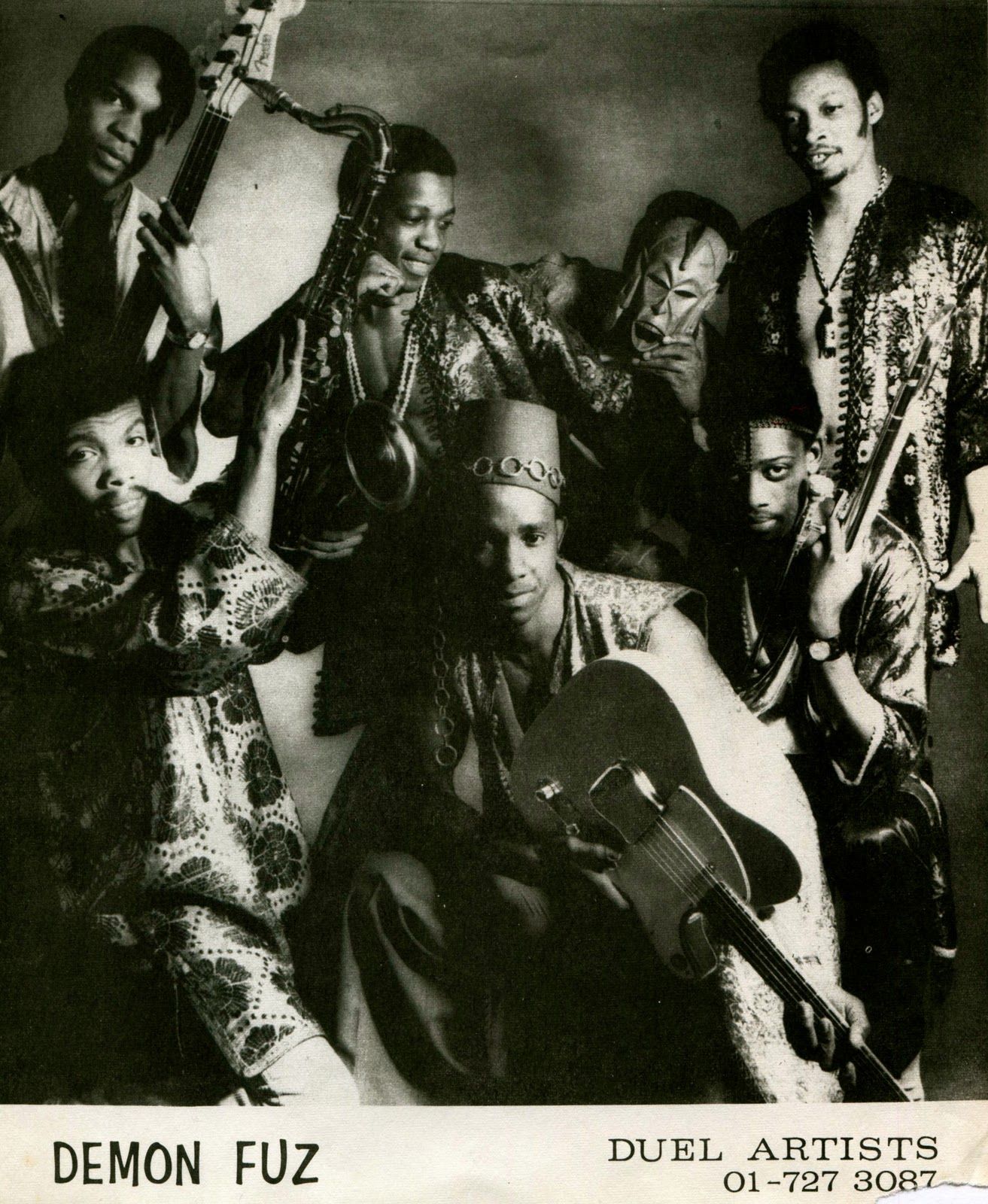
“The idea behind Demon Fuzz was born in Morocco”
You are coming from a tiny country in the Caribbean. What was it like to grow up in Saint Vincent and the Grenadines?
Paddy Corea: I’m originally from Saint Vincent and the Grenadines. West Indies. Growing up there in my early years was fabulous. I never wanted for anything, and although we didn’t have TV, a car, fridge or telephone, we got by quite well and comfortably. That lifestyle contributed to our creativity in that we had to make our own entertainment.
At a very early age I got involved in Carnival, the annual festival of pageantry. I was four years old when my mom sewed a costume of red satin and white cotton wool edging and threw me into the ring with all the other children at the junior carnival festival. I won first prize! I’ve been involved in carnival with a couple of breaks ever since. Sports were always a big feature in our lives. Soccer was my thing. I was a founder member of Notre Dame FC and got suspended from my grammar school because I played for an outside team. I didn’t care one bit. Notre Dame went on to become one of the great teams of Saint Vincent and the Grenadines in the 60s.
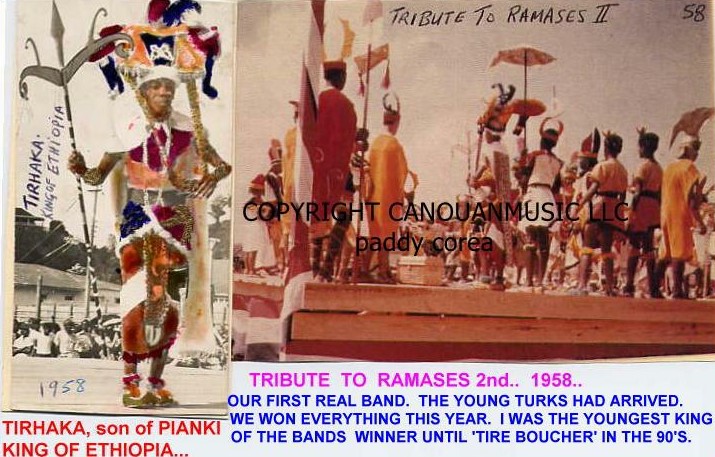
You are a self-taught musician. Caribbean music is based around rhythms. Did that play an important role on you as a young musician?
Music obviously was part of the experience also. I started pinging on grannie’s piano not even knowing what the notes were. Went on to quatro and guitar and then came the steel pan. Within two years I had a steel band (Pan Invaders) that shook up the big guns in Saint Vincent and kicked their behinds as well. All western modern music is African driven hence rhythm is the root. I am a self taught musician. My reading and writing music skills are elementary. The core music of Saint Vincent in those days was calypso and it still is but I was exposed to classical music as well.
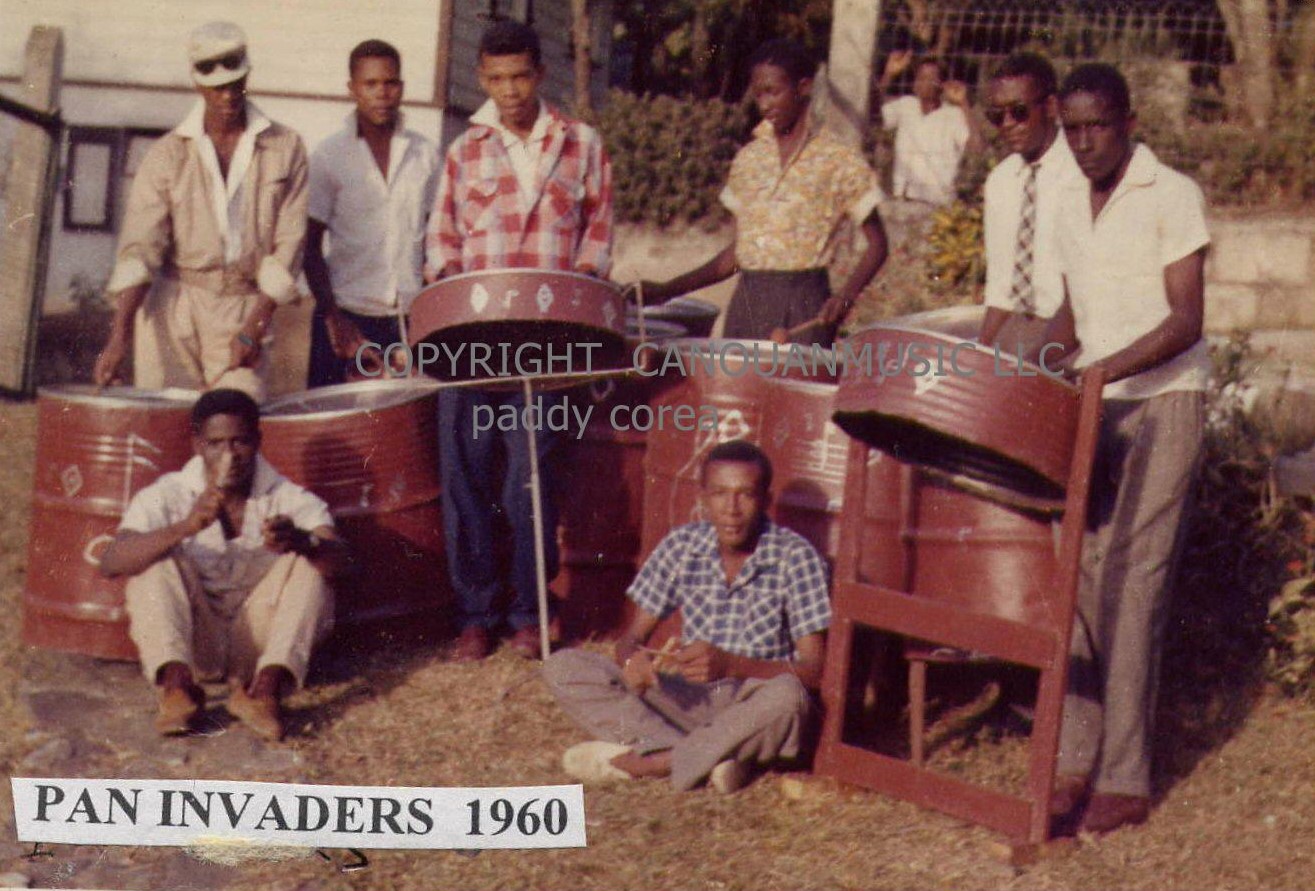
Why did you move to England in 1960? You were still very young.
My dad sent me off to England in 1960. The best decision ever made for me in my entire life. I had expressed a desire to go to the UK and join the RAF and he saw this as a way for me to further my education and gain some valuable experience in the wider world. I joined the British Army instead. I have had a varied bunch of careers in my years in England.
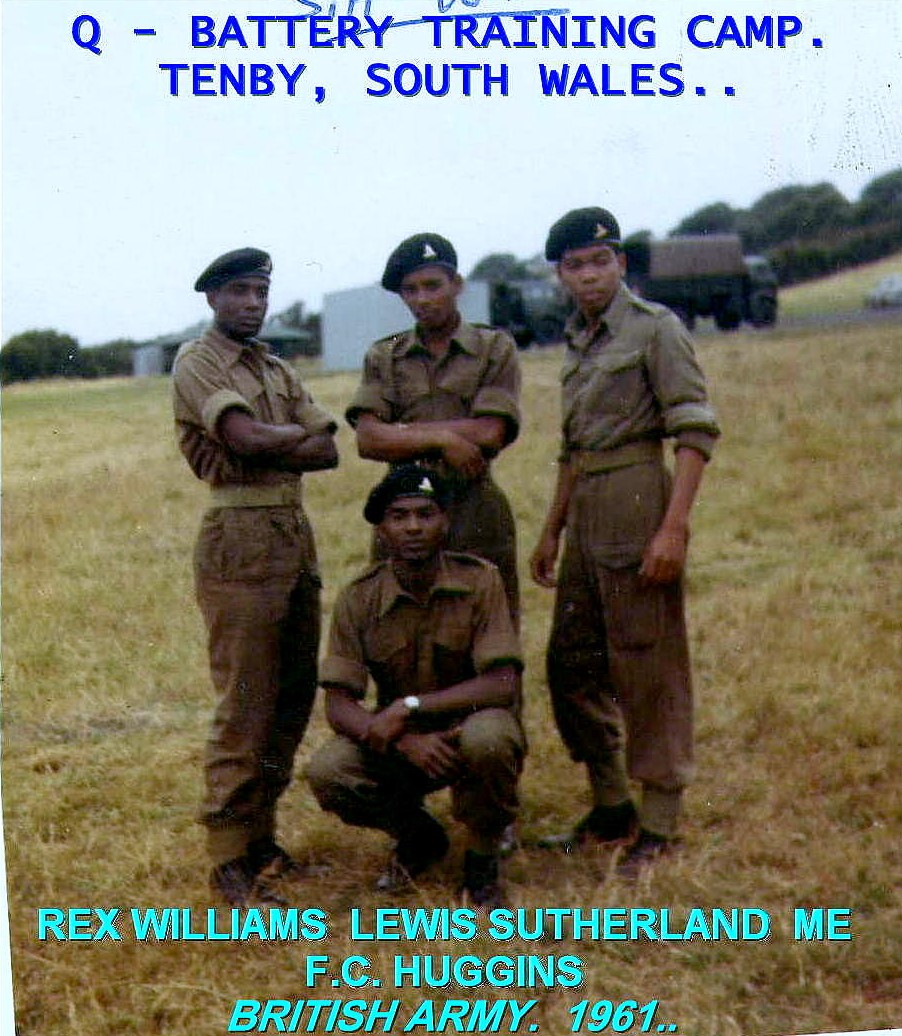
I was the youngest driver on the London Underground (subway), the first Vincentian to become a London transport train driver. My last job was as a telegraphist for LIT with my own office at Wood Green that serviced Alexandra palace. I quit everything to become a professional musician.
What was it like to be in the UK back in the early 60s? Did you enjoy the scene?
The 60s in the UK were halcyon years culturally in all the arts. They were also very poor years. Britain was just out of World War II and beginning to rebuild so nobody could afford much. Everybody lived in a similar state of deprivation but that didn’t matter. You survived with what you had.
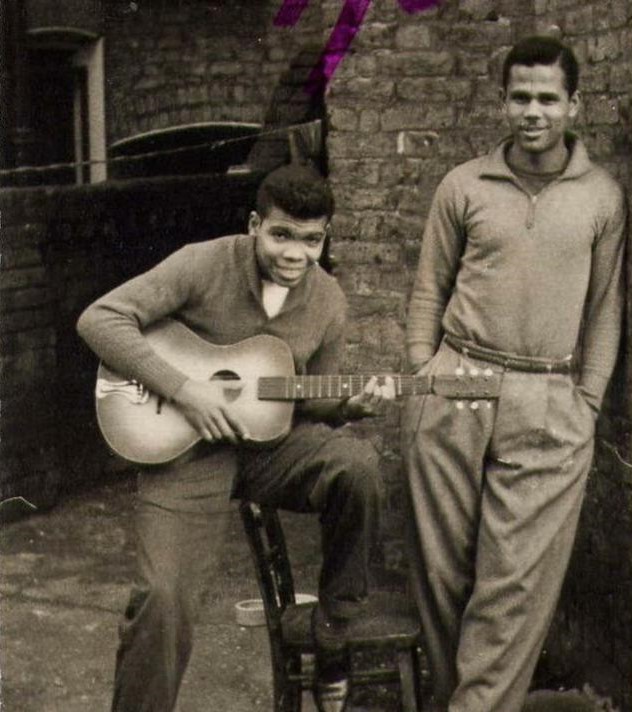
One of the first bands you joined were Ickford Tomaz And His Latin American Jazz Band.
I fell into sax playing by accident. I bought an alto (circa 1962) from a chap called Mambo for five pounds. He didn’t know how to play and couldn’t play this horn he said he found. I upgraded to baritone a year later.
Ickford Tomaz And His Latin American Jazz Band was a two in one ensemble. You got the steel band and the R&B/reggae band all in one. It was a pretty good training ground for me. I was on baritone then.
That eventually evolved and you joined Mood Indigo. What were the circumstances around it? You had no guitar in the band and some might say that you were doing jazz rock before everyone else. Did you realize that at the time?
Mood Indigo was an exceptional unit. Del Paramor on tenor sax and clarinet and I on baritone and soprano sax. The singer (and sometimes drummer) was the famous David Essex of ‘Rock On’ fame. We were doing what eventually became known as jazz rock long before anybody in England. I’m talking about 1965-66. We were also heavily blue accented. I brought the raucous Junior Walker and King Curtis style to the band and Del Paramor grounded us in his forte, the New Orleans jazz style.
Yes we did record for Decca at their West Hampstead studios. I think we did 6 tracks but none were ever issued. We have no inkling as to what happened to those recordings. Probably in Decca’s vault.
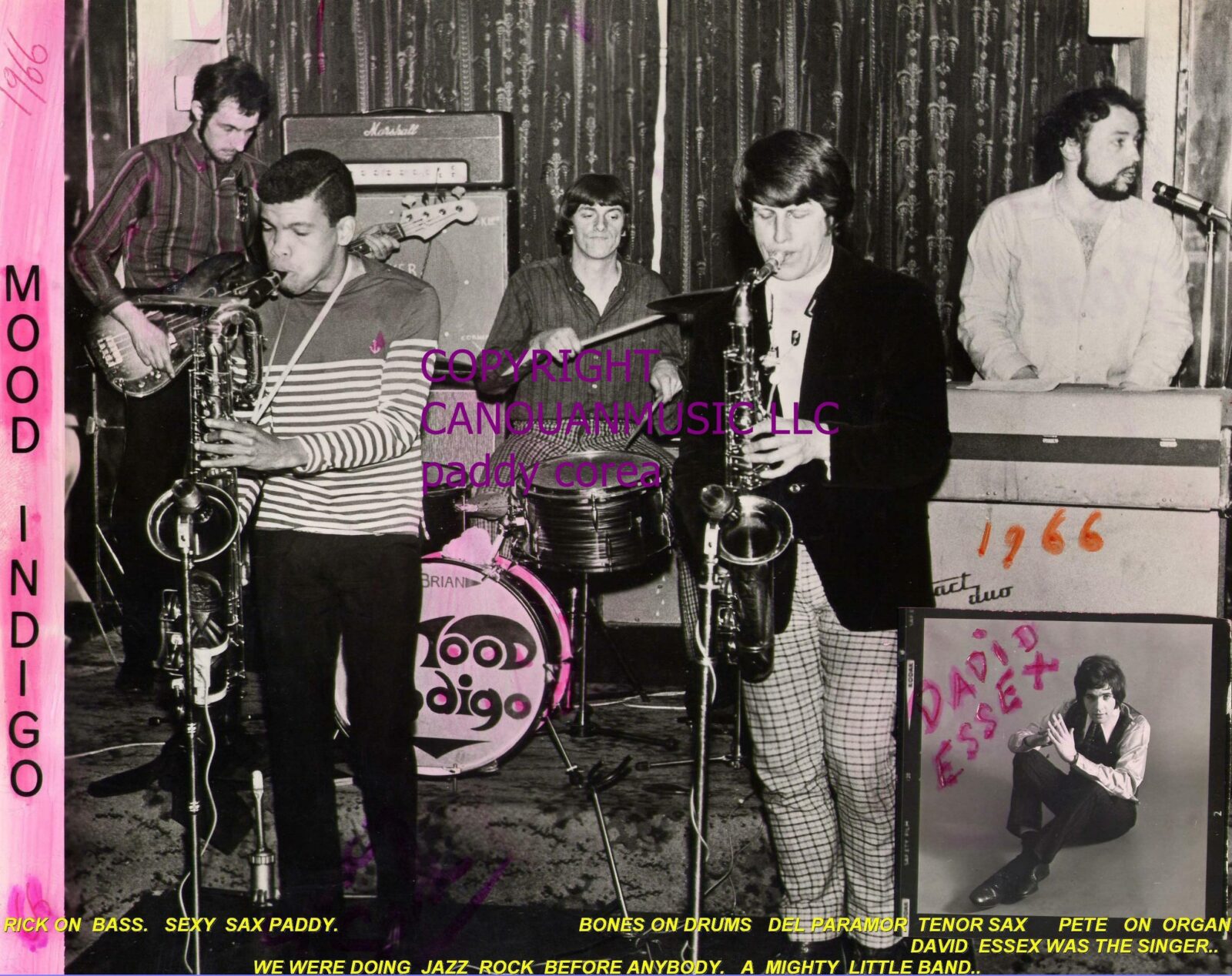
Back in those days the clubs were small and many were just makeshift community halls or union halls, pubs and the University scene which was quite vibrant. Just to drop some names in the early days, Klooks Kleek, Flamingo, Bag O’Nails, The Scene, All Star, Bamboo, Twisted Wheel, Electric Garden, The Cavern, The Lyceum, Eel Pie Island, The Marquee, Club 100, The Mighty Cue Club run by Count Suckle, Samanthas, Porchester Hall, Ram Jam, and loads of community halls, union halls, pubs, up and down the country.
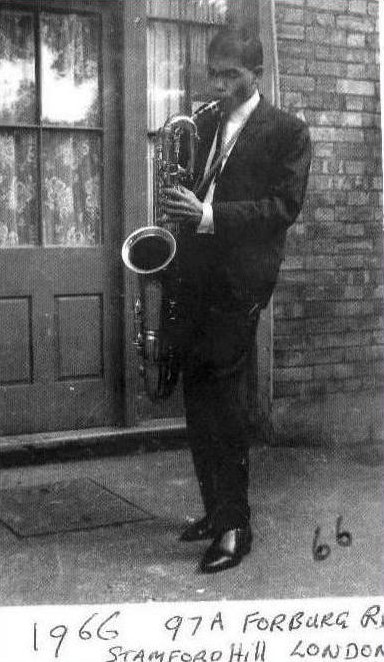
How come the band never issued any tracks that you recorded for Decca? What do you recall from the songs?
Yes we did record for Decca at their West Hampstead studios. I think we did 6 tracks but none were ever issued. We have no inkling as to what happened to those recordings. Probably in Decca’s vault.
What were some clubs that you played and what were some of the groups that you shared with?
Back in those days the clubs were small and many were just makeshift community halls or union halls, pubs and the University scene which was quite vibrant. Just to drop some names in the early days, Klooks Kleek, Flamingo, Bag O’Nails, The Scene, All Star, Bamboo, Twisted Wheel, Electric Garden, The Cavern, The Lyceum, Eel Pie Island, The Marquee, Club 100, The Mighty Cue Club run by Count Suckle, Samanthas, Porchester Hall, Ram Jam, and loads of community halls, union halls, pubs, up and down the country.
About the groups (bands) that we shared the stage with, every one that ever existed between 1965 and 1972. All! It’s too numerous to mention.
How come you left the band and how did Blue Rivers & The Maroons come about?
I left Mood Indigo and joined Blue Rivers & The Maroons because they were gigging regularly and David Essex was about to go solo so the future doesn’t look bright. Del Paramor and I still keep in touch. He lives in Augsburg, Germany. David Essex and I lost touch a few years ago. He christened me sexy sax probably from our escapades on the road especially one night in Bognor Regis.
Blue Rivers & The Maroons was one of the baddest ska/r&b bands in all of the UK and Blue Rivers was quite a personality on and off stage. We even backed up Wilson Pickett on his only British tour. He was impressed by us.
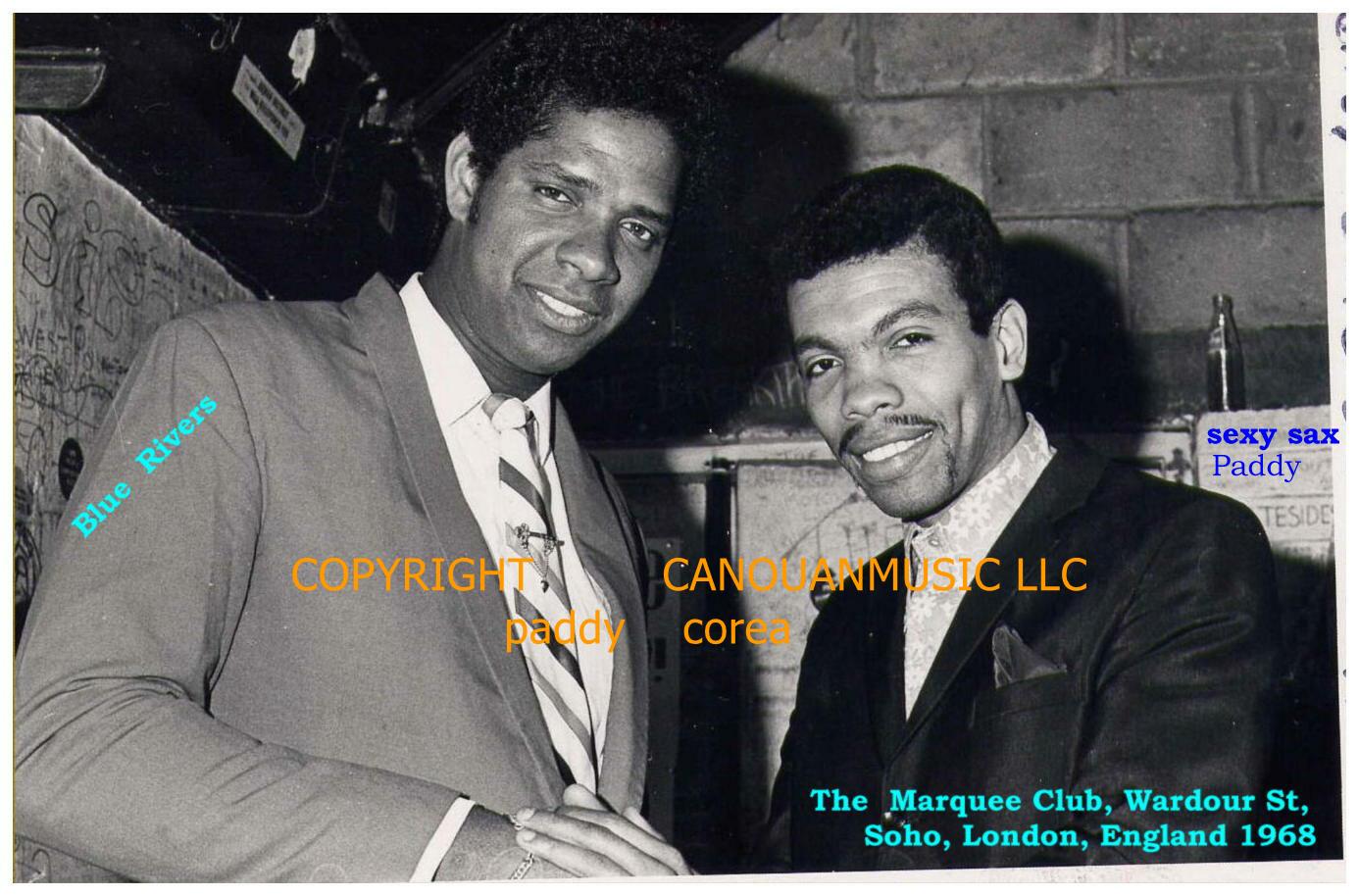
What can you say about The Skatelites? This was not the original Jamaican band. What kind of material did you play?
After that I joined The Skatelites, a knock off name band. We were not the original (notice the spelling) band but we copied their music down to the last note. We did it quite well. So much so that when the original The Skatalites came on tour and couldn’t bring Tommy McCook, I was offered the opportunity to sub for Tommy McCook and as per the mighty Roland Alphonso quote, “You hot man, you hot…!.
Around 1969 Blue Rivers & The Maroons went to Africa and that left a huge impact on the members.
I left England for Morocco to re-join Blue Rivers & The Maroons who needed a front man on sax that could wail. It was all organized by the legendary Ziggy Jackson (record producer, agent, manager, and everything man). I think Ziggy also owned Melodisc Records on which the legendary lord Kitchener recorded with another legend Shake Keane (from Saint Vincent also). Shake Keane was the finest flugelhorn player in England and Europe in those days. His association with Joe Harriott with the legendary quintet made waves in England. They both teamed up with sitar player arranger John Mayer to fuse Indian raga with jazz … see indo jazz fusion. Wonderful music.
Did you experience any racial injustice back then?
Racial prejudice and injustice was prevalent then … police brutality against the black community was prevalent then also. In the North Kensington area Harrow Road police station was the crucible of violence, brutality and victimization against black people then. At this time the trumped up bogus charges and trial of Mangrove Nine was taking place. Officers from the Harrow Road police station would systematically and constantly harass and beat up black people on the streets, invade black homes, and businesses and damage fittings in black businesses especially the Mangrove restaurant, in an attempt to sabotage the business. That was the norm. The ring leader was an ugly lying vicious son of a bitch named officer Pully. He was eventually shamed and kicked out of the metropolitan police force. I can give you personal accounts of my experience that’s similar at West End Central police station. The Mangrove Nine won their case in 1971. I was a personal friend of Frank Crichlow. He was the big target for the Harrow Road police. As far as I know little has changed since then.
“Demon Fuzz, the name I concocted out of my experience with Harrow Road police brutality”
Morocco was a melting pot for hippies… a completely different culture than in the UK. How much did that influence you and other members and what in particular did you find the most fascinating?
Back to Morocco, it was an education for some of us. The rhythms, the sufi arabic musical scale, the twirling heads, and of course kiff (hashish). Our experience was a transformation for some of us. Demon Fuzz was born there. Not the name but the idea. I have played in several European countries and even went behind the Iron Curtain to do weekend TV spots with Jamaican singer Bruce Ruffin (‘Rain’).
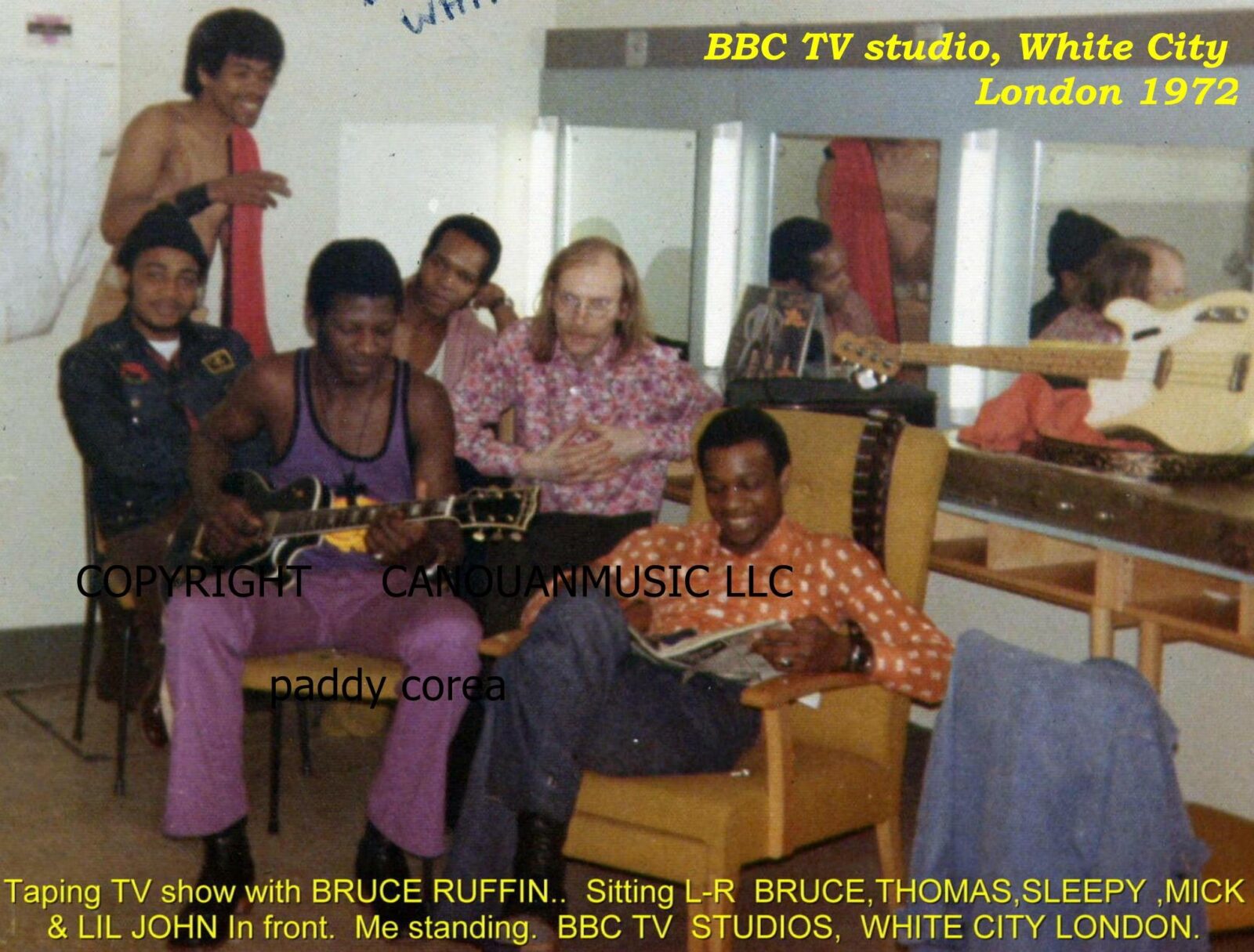
What’s the story behind the band’s name?
Demon Fuzz, the name I concocted out of my experience with Harrow Road police brutality. That’s how personal and how critical the victimization was to us.
“Our influences collectively cover the widest possible range of musical genres and forms”
Can you elaborate on the formation of Demon Fuzz? You came back to the UK, influenced by Arabic music and together with some other jazz influences you wanted to start something your very own and you actually succeeded in producing a truly unique and consequently very influential music.
The Maroons disintegrated on our return to the UK, and five members joined me simply because we were tired of the three chord changes and the 2nd and 4th beat. We had discovered and experienced a whole new dimension of rhythm and musical scales in the sahara desert and we felt we had something more to say than the simple stuff we were playing.
If you notice most of the recorded works we have are original compositions. Roy Rhoden and Crossbones Joseph were our main writers/composers. I added a few of my own. I did most of the arrangements with help from everybody in the band. We were very discriminative in using other people’s compositions. Only our very favourite piece from 2 or 3 other bands did we use. ‘Persuasion’ by Santana, ‘You Keep Me Hangin’ On’ by The Supremes and ‘Another Country’ by The Electric Flag. Both albums encompass our mind set then, ‘Afreaka!’ and ‘Roots And Offshoots’. Our influences collectively cover the widest possible range of musical genres and forms, classical, ska, jazz, calypso, steel band, r&b, soul, blues, reggae.
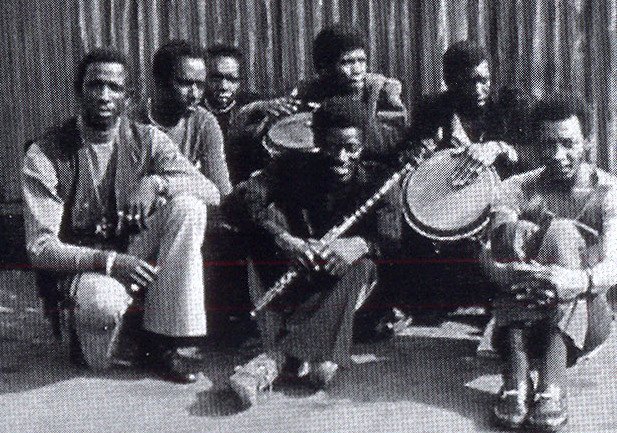
How did you get signed to Janus Records/Dawn?
Dawn Records was a subsidiary of Pye electronics with recording studios in Marble Arch at Cumberland house (I think). Barry Murry produced ‘Afreaka!’. I would have done a better job but the record company and the management agency wanted their Boy Barry. He was a lightweight in the business.
The Red Bus artist agency owned by Elliott Cohen and Ellias Elias were our management /agency. The Janus hook up was via the Red Bus agency.
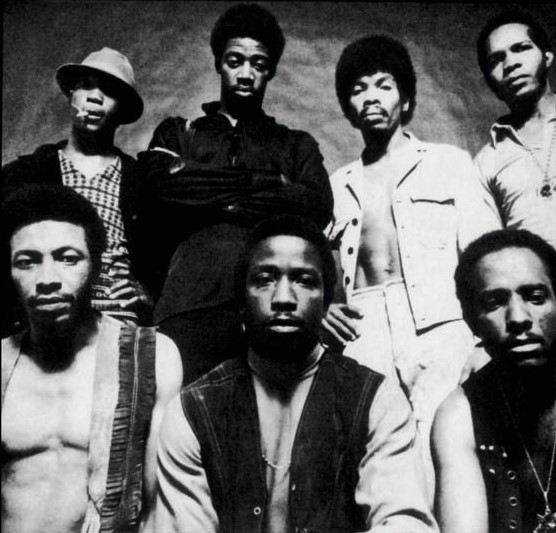
What are some of the strongest memories from recording and producing ‘Afreaka!’? (what studio and who was the producer)
We did ‘Afreaka!’ in one night. Everything was one take. We were well rehearsed. My strongest and best memory of the session was Selwyn Smokey Adams’ voice. Magnificent.
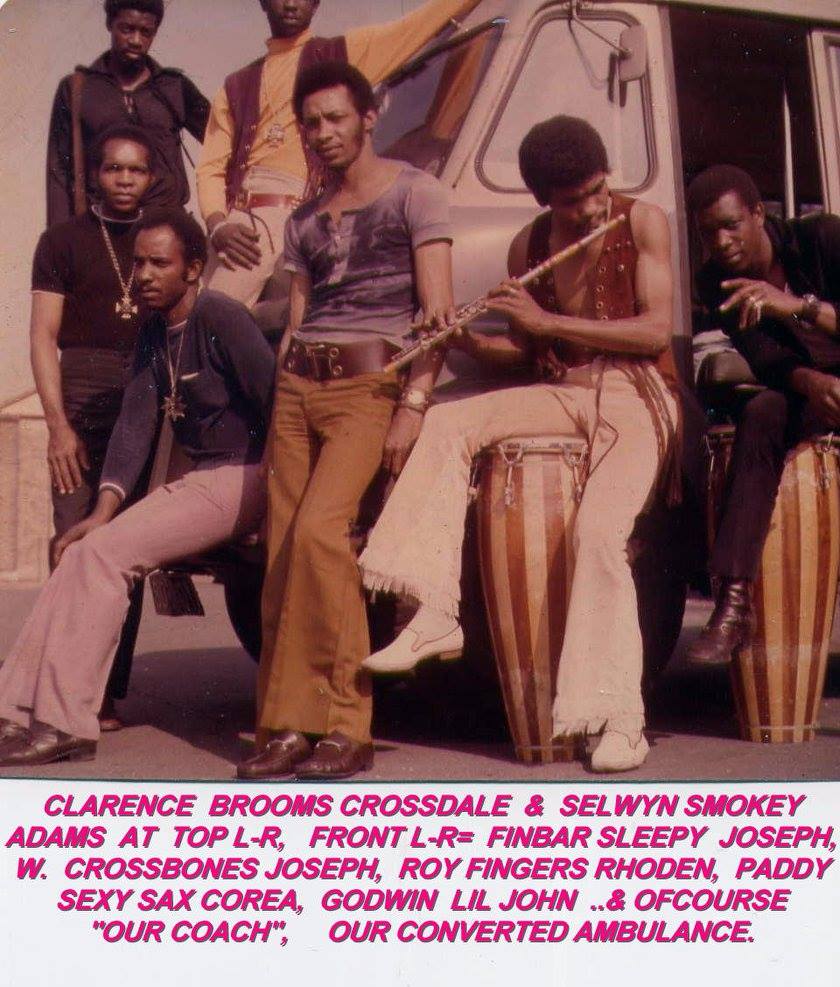
Would you say there’s a concept behind the album?
Visually, musically, culturally, politically, and our collective musical skills changed the face of black music in England in those times and spawned several copy bands. Cymande, Batti Mamzelle, Protoplasm and a few others. One newspaper writer who was woefully ignorant of black people called us seven arrogant spooks. Poor fellow, he couldn’t tell the difference between confidence and arrogance. He wrote for the New Musical Express. We pitied him.
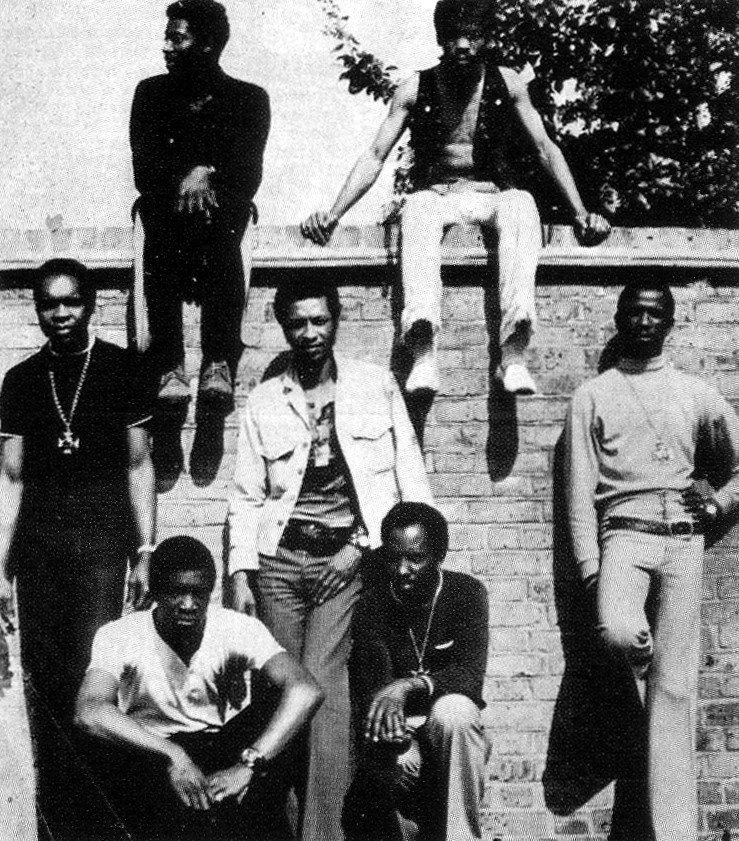
The concept behind the album is the concept behind the band. Get away from the three chord music with the 2nd and 4tn snare drum beat that was the all encompassing rhythm pattern for most of the music we heard and played. We had a lot more to say musically.
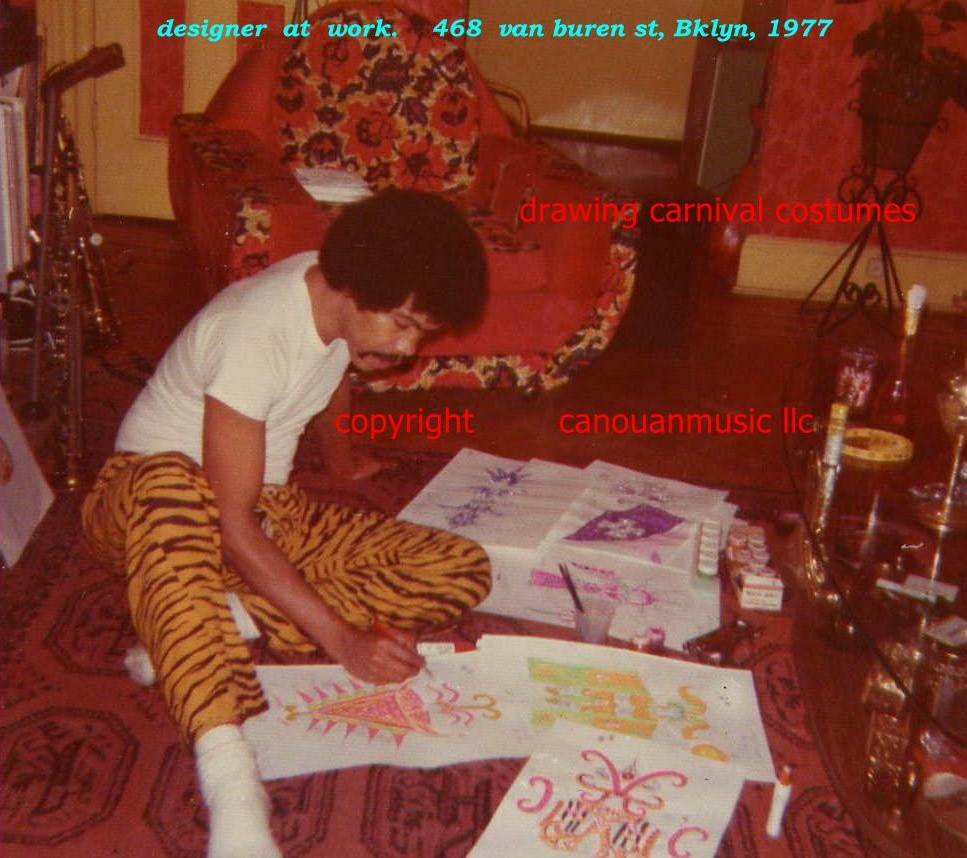
When did you leave the band and what was the reason for it?
I still think I made the right decision to leave England in 1972 at the height of Demon Fuzz’s skyrocketing ride.
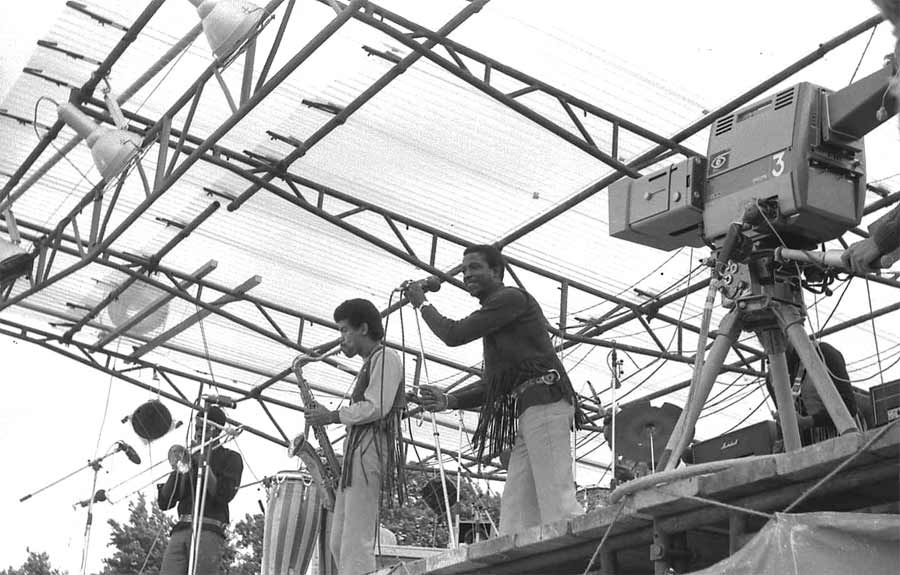
Part of my decision had to do with the racial climate in England and the Mangrove Nine trial. I had become very disillusioned at that time. I detested the hypocrisy I encountered both as a musician and as a citizen and the climbing incidents of police brutality on the black community gave impetus to my decision. I have not regretted it. It took me 8 years before I went back to see my son and daughter and reconnect with my musician friends and I was shocked to find them stuck in a time warp in the old days playing the same old tired music and dressing the same old way. I knew I had made the right decision. Even my buddy Eddie Grant (The Equals) left England for similar reasons. He lives in Barbados.
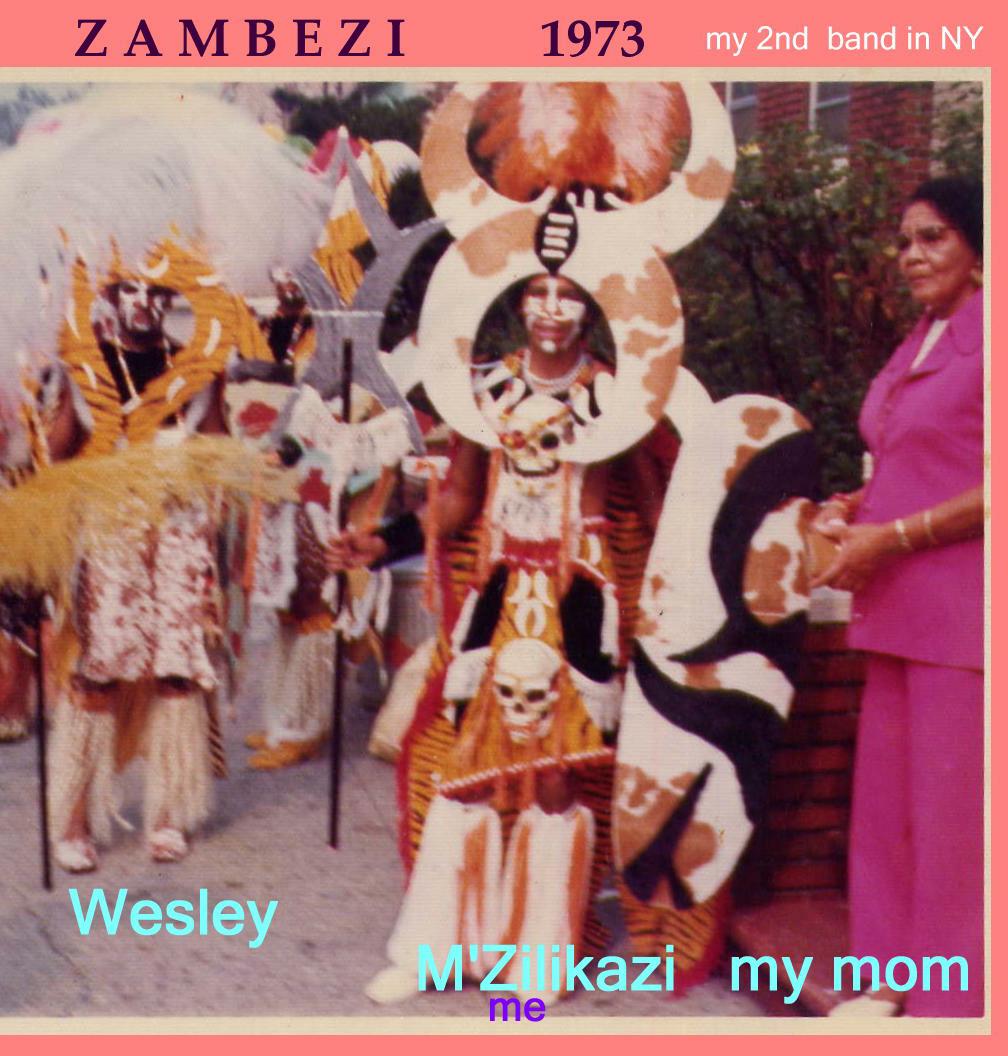
You then played with Carl Douglas & The Big Stampede. Carl Douglas had a huge hit later on. What were the days you were part of like? Are you present on any recording? What about Freddie Mack’s Extravanganza In Sounds? Was there any other band you were playing with?
I didn’t play with Carl Douglas & The Big Stampede. Carl was a friend though, and I did play with the Freddie Mack Extravaganza and Carl was the vocalist. Freddie was a personal friend and I took the gig to build up my finances before leaving for the USA.
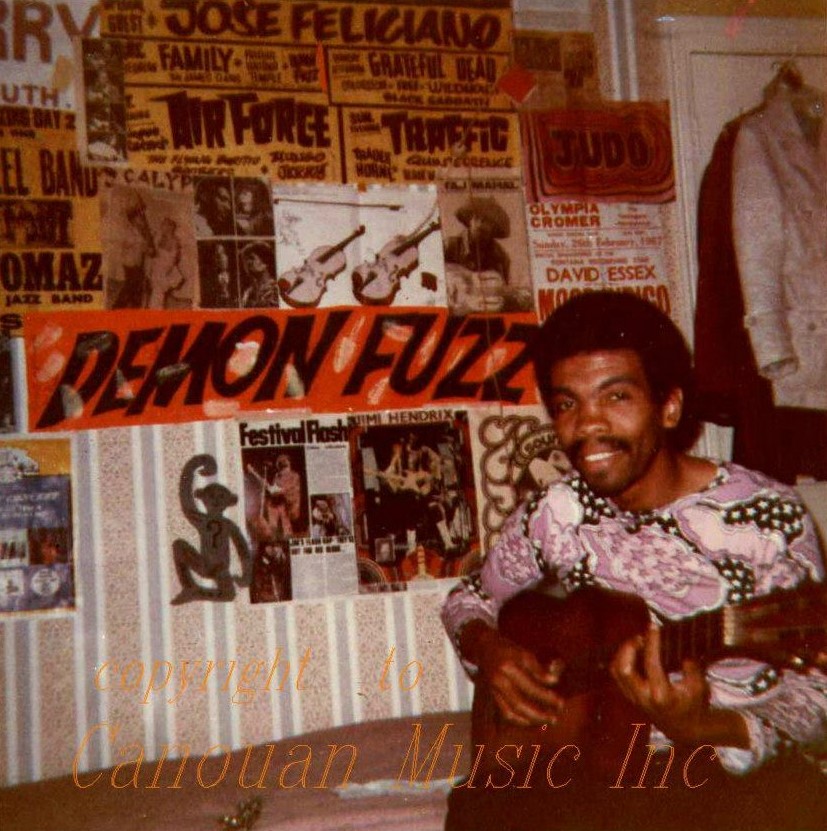
What about the ‘Roots and Offshoots’? Tell us about the album…
I produced just for my own ‘Roots And Offshoots’ and eventually put it on my Paco label in 1975 in New York. It was recorded in a little 8-track mini studio in Islington. It is primarily the other kind of music we did especially in the London clubs. Again original material (notice the tonal difference of this recording to ‘Afreaka!’ and the prominence of the bass). That’s my style.

Looking back, what was the highlight of your time in the band?
I’m awfully proud of all my music.
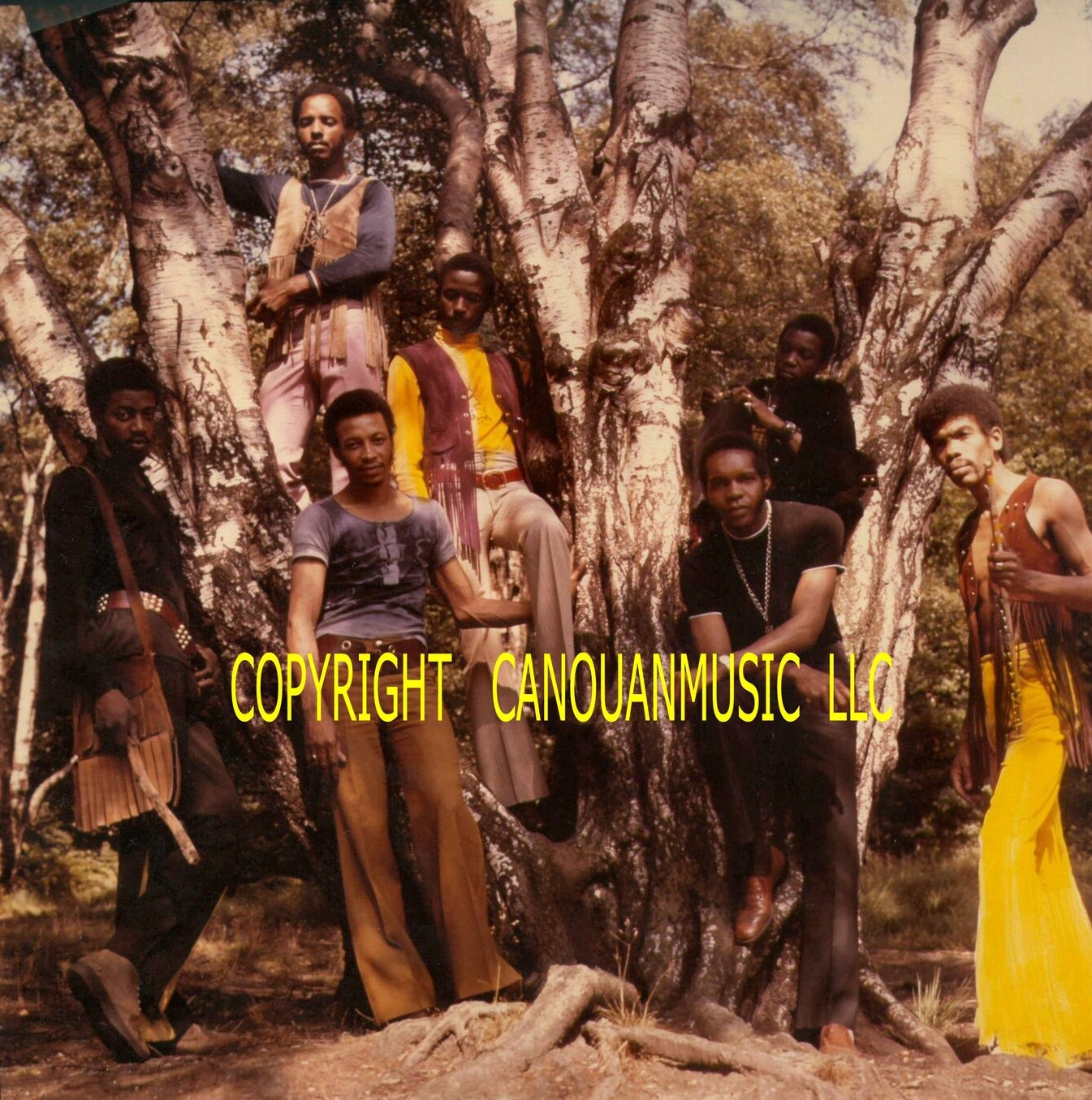
One the sidenote; I built the first complete steelband in England at High Wycombe circa 1963. We were called The Maestro’s All Steel Band. I built all their pans, trained them, arranged the music, got them a recording contract with EMI (The Maestro’s All Steel Band – ‘The Caribbean Sound’). The record is still available! I played bongos on the recording and supervised the entire recording session. The technician EMI sent to produce didn’t know his ass from his elbow and didn’t know a lick about recording a steel band.
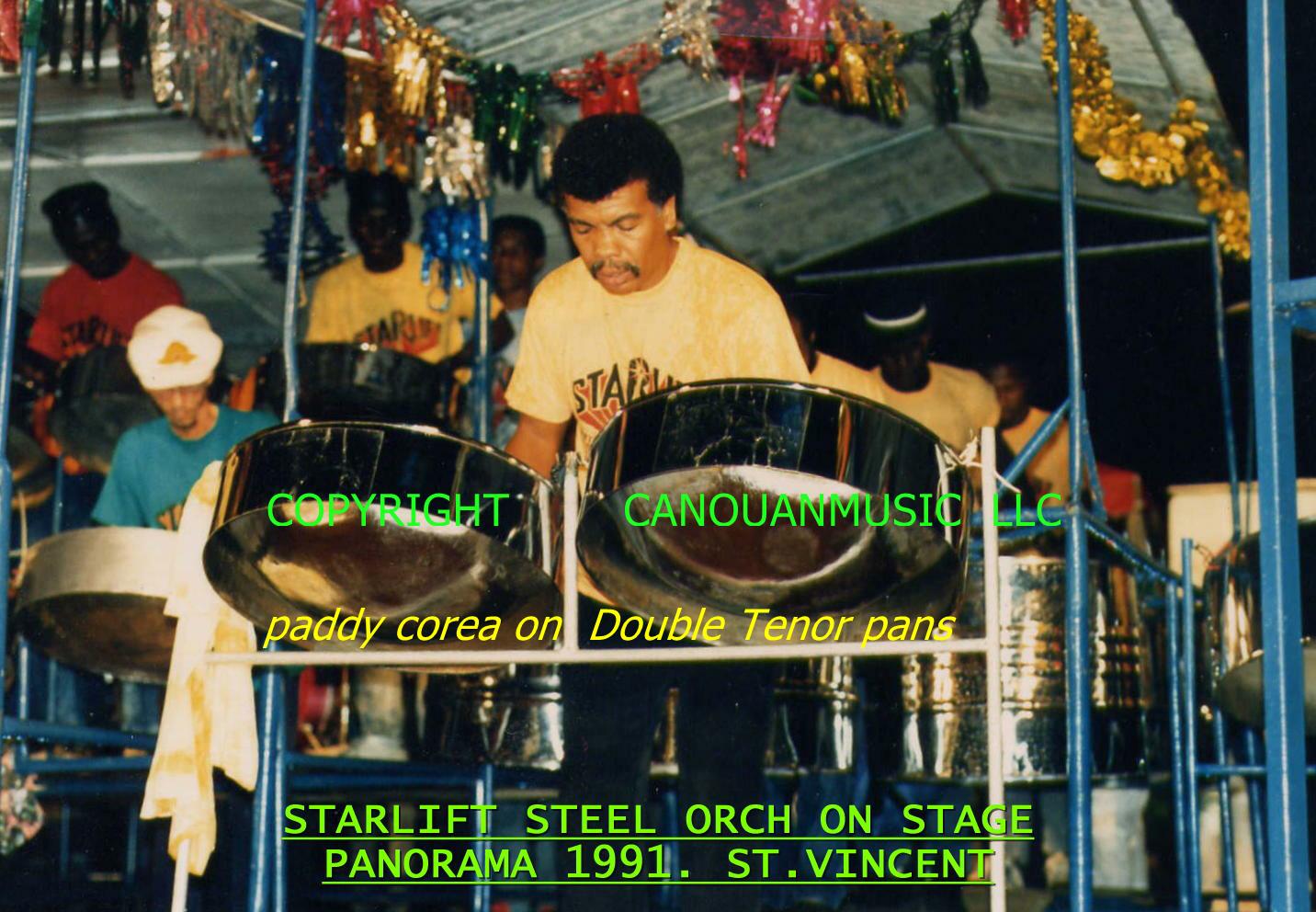
What are members of Demon Fuzz doing today? Are you still in touch with anyone?
There are four of us alive today, Sleepy Jack Joseph and I are both here in New York, Little John in Grenada still playing and Crossbones Joseph in Toronto.
Klemen Breznikar
All photo materials are copyrighted by their respective copyright owners, and are subject to use for INFORMATIONAL PURPOSES ONLY!
Demon Fuzz Facebook
Canouan Music LLC Facebook
Paddy Corea YouTube

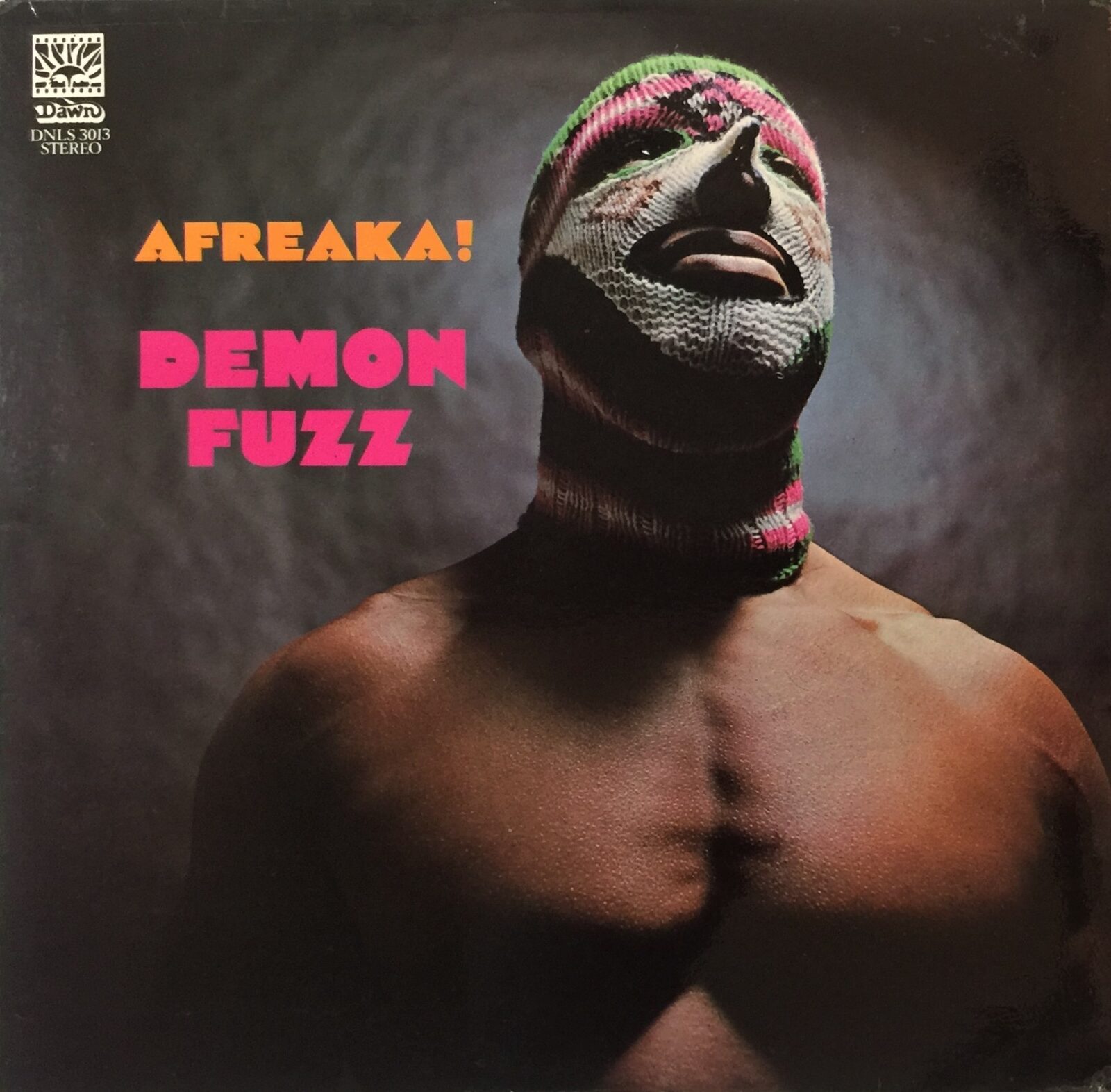
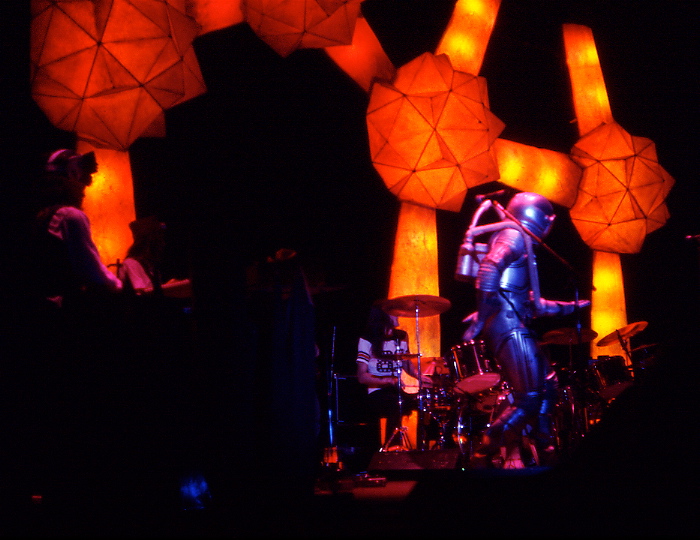
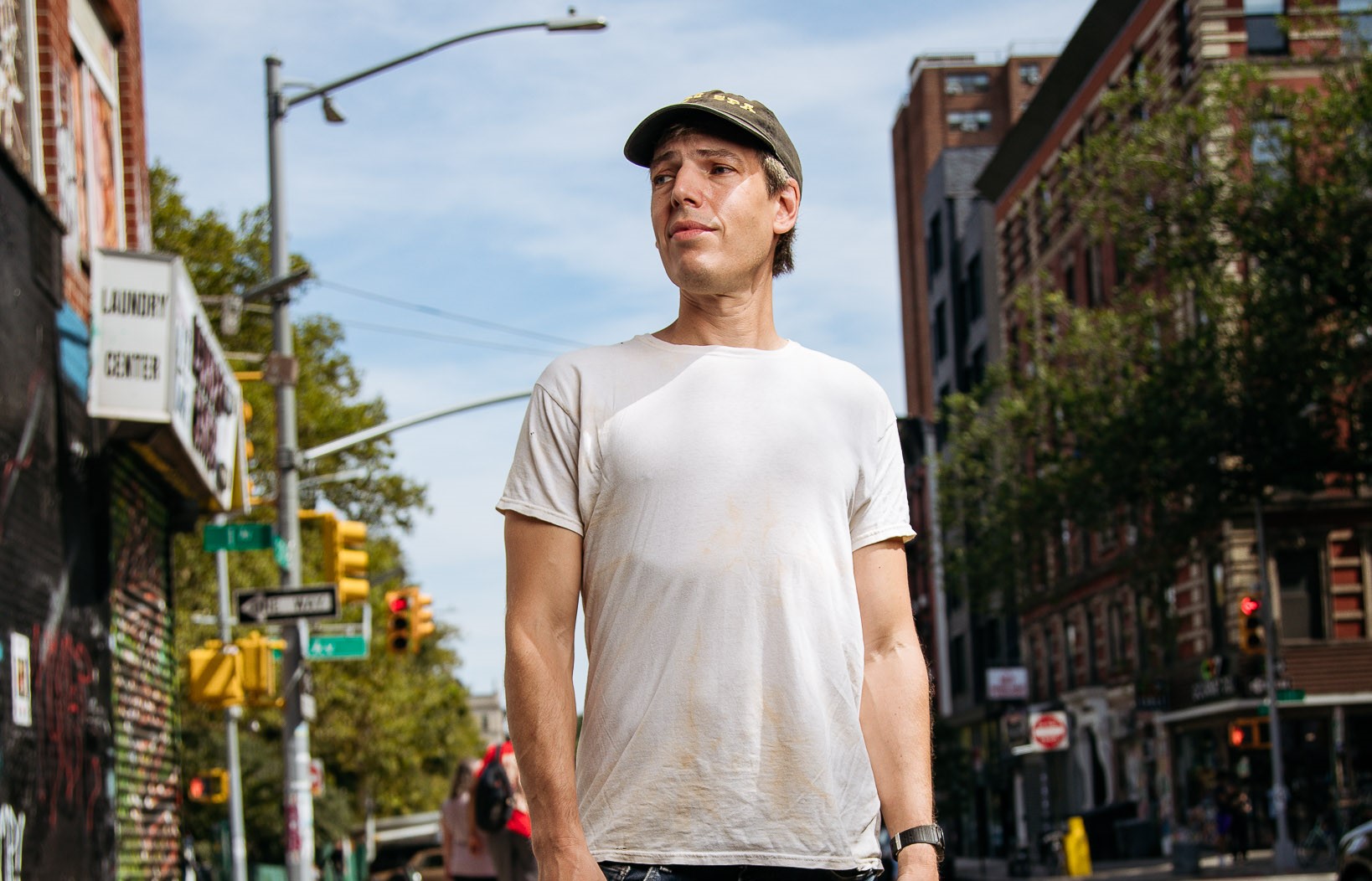
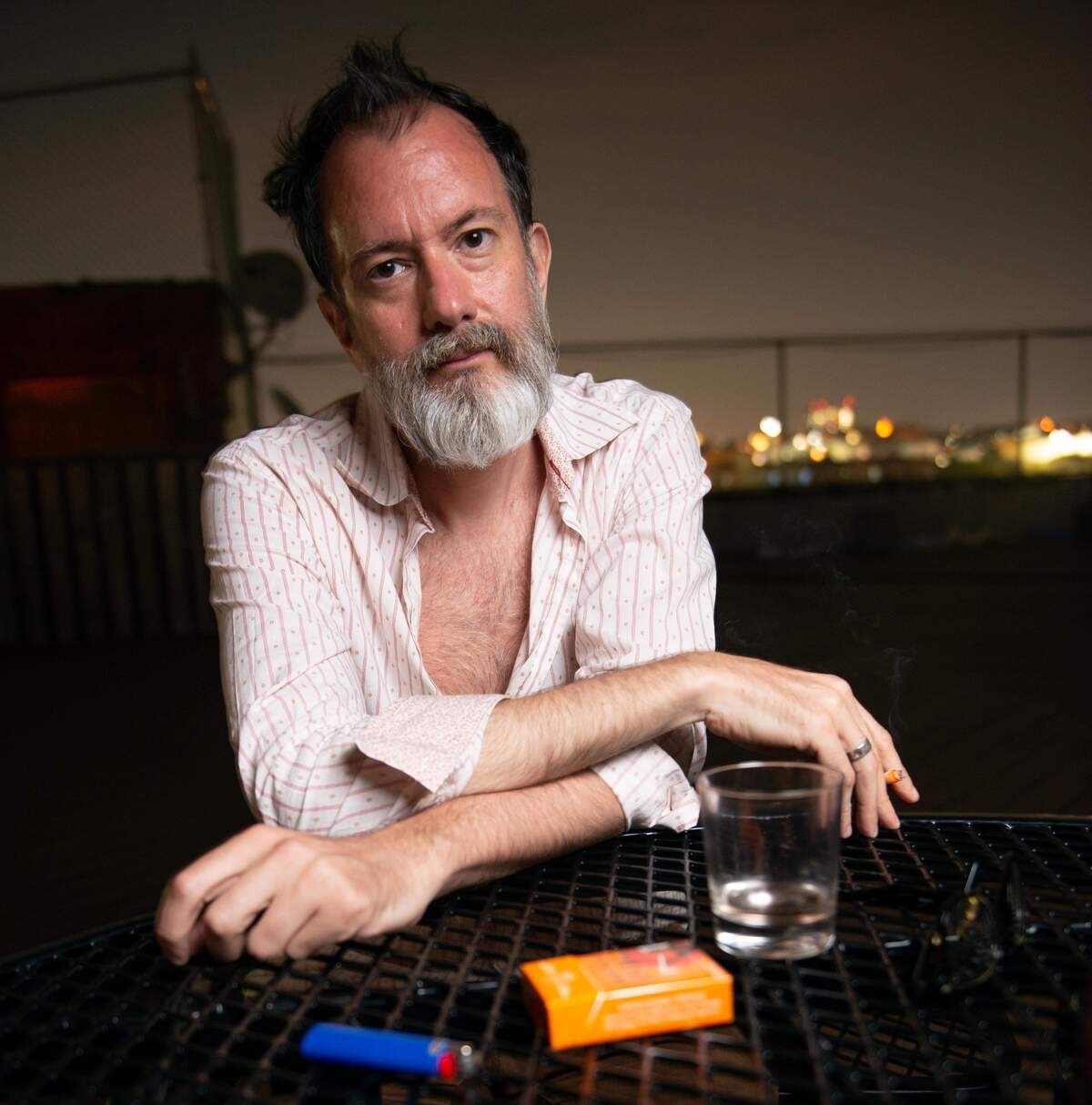
Many thanks for a lovely interview regarding Demon Fuzz. I saw Noir from that same period in Manchester many, many years ⌛ ago who were excellent. As you know there were other Black bands playing outside of the standard Reggae and Soul styles in that same period too. Many Thanks from ? Joel